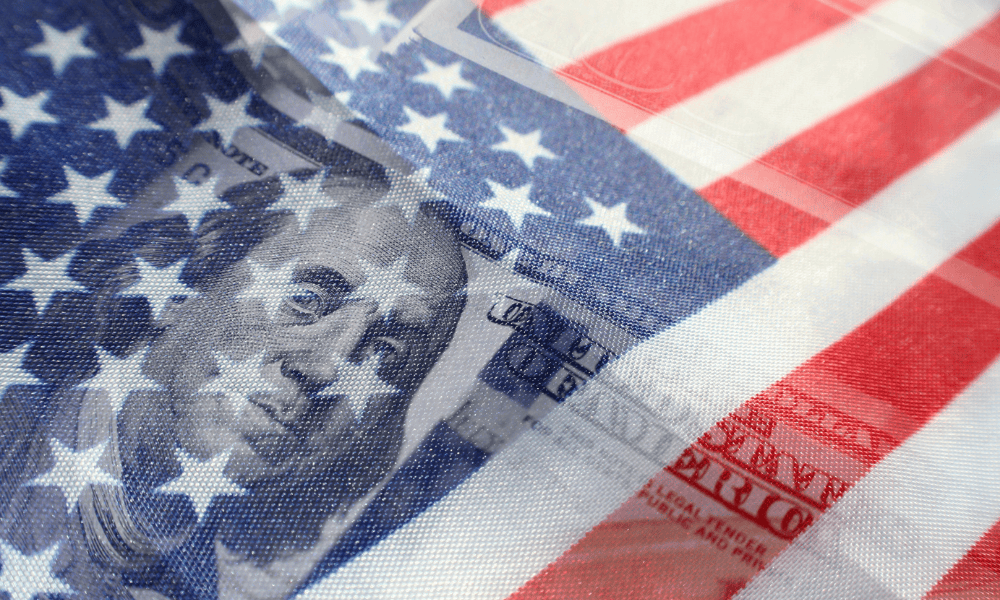
U.S. stocks retreated on Thursday after a key inflation report showed a faster-than-expected rise in prices and boosted the benchmark 10-year Treasury yield above a key level.
The tech-heavy Nasdaq Composite slid 2.1% to 14,185.64, while the S&P 500 shed 1.8% to 4,504.08, and the Dow Jones Industrial Average lost 526.47 points, or 1.47%, to 35,241.59. Stocks were volatile throughout the day.
With all three major averages briefly turning positive at one point and the Dow being down more than 600 points at session lows.
Ultimately, stocks finished deeply in the red as traders began to speculate the Federal Reserve would get more aggressive with its tightening policy to fight inflation.
Thursday’s consumer price index report showed a year-over-year rise of 7.5%, hotter than expected and the largest gain since 1982.
The 10-year Treasury yield jumped above 2% after starting the year at 1.51%.
Short-term rates spiked even more, in a sign that investors were expecting the Fed to act in a bigger way to keep inflation from becoming entrenched.
The 2-year yield gained more than 26 basis points (1 basis point equals 0.01%) in its biggest single day move since 2009.
“With another surprise jump in inflation in January, markets continue to be concerned about an aggressive Fed.
While things may start getting better from here, market anxiety about potential Fed overtightening won’t go away until there are clear signs inflation is coming under control,” said Barry Gilbert, asset allocation strategist for LPL Financial.
| Revealed In 2022 What indicators do professional traders use? |
Stocks took another leg lower in early afternoon trading after St.
Louis Fed President James Bullard told Bloomberg News that he was open to a 50-basis point hike in March and wanted to see a full percentage point of hikes, or 100 basis points, by July.
Big Tech stocks dropped with Microsoft falling 2.8%. E-commerce stock Shopify slid 3.4%, while Adobe dropped 5%. Higher interest rates tend to put pressure on tech and other growth stocks as they make future earnings less attractive to investors.
Futures trading as gauged by the CME pointed to a near-100% chance of a 50-basis-point increase at the March meeting.
The market also is anticipating a 61% chance that the Fed will hike seven times this year, which would entail a move at every meeting through the end of 2022.
“They have to do two things: they have to regain inflation confidence.
They are way behind in the understanding of inflation. And two, they have to control the policy narrative,” Mohamed El-Erian, chief economic advisor at Allianz, said about the Fed on “Closing Bell.”
Economists at Citi also changed their forecast to a 50 basis point hike in March.
Shares of homebuilders and utilities, which can also be sensitive to rising rates, underperformed on Thursday.
“A 2% rate for the 10-year Treasury note yield, coupled importantly with higher than forecast inflation and consequently more aggressive.
Fed tightening cycle, is negative for equity prices overall and especially debt-dependent companies like technology,” said Kathy Bostjancic, chief U.S. financial market economist at Oxford Economics.
“The key offset would be that economic growth and earnings for now are healthy.
However, a more aggressive Fed could slow growth more than desired.”
However, even with Thursday’s declines, the major averages remained up slightly for the week heading into Friday.
A solid batch of earnings reports helped to limit the losses for the market on Thursday.
Shares of Dow 30 component Disney jumped 3.4% after the company reported a quarterly earnings beat and a doubling of revenue from its parks, experiences and consumer products division.
Coca-Cola shares ticked up 0.5% after the soft drink giant reported earnings and revenue that beat Wall Street estimates. Cloud stock Twilio rose 1.9% after its quarterly report. - cnbc.com